In ‘Practical type inference for arbitrary-rank types’, the authors talk about subsumption:

I try to test things in GHCi as I read, but even though g k2 is meant to typecheck, it doesn't when I try with GHC 7.8.3:
λ> :set -XRankNTypes
λ> let g :: ((forall b. [b] -> [b]) -> Int) -> Int; g = undefined
λ> let k1 :: (forall a. a -> a) -> Int; k1 = undefined
λ> let k2 :: ([Int] -> [Int]) -> Int; k2 = undefined
λ> :t g k1
<interactive>:1:3: Warning:
Couldn't match type ‘a’ with ‘[a]’
‘a’ is a rigid type variable bound by
the type forall a1. a1 -> a1 at <interactive>:1:3
Expected type: (forall b. [b] -> [b]) -> Int
Actual type: (forall a. a -> a) -> Int
In the first argument of ‘g’, namely ‘k1’
In the expression: g k1
g k1 :: Int
λ> :t g k2
<interactive>:1:3: Warning:
Couldn't match type ‘[Int] -> [Int]’ with ‘forall b. [b] -> [b]’
Expected type: (forall b. [b] -> [b]) -> Int
Actual type: ([Int] -> [Int]) -> Int
In the first argument of ‘g’, namely ‘k2’
In the expression: g k2
g k2 :: Int
I haven't really gotten to the point where I understand the paper, yet, but still, I worry that I have misunderstood something. Should this typecheck? Are my Haskell types wrong?